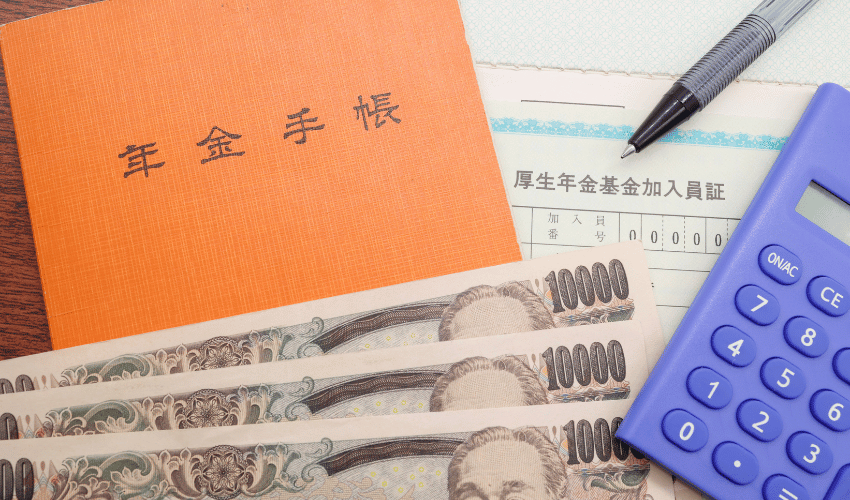1. Introduction: Understanding the Japanese Visa Process
Understanding the visa application process is necessary for foreigners seeking employment in Japan. Although working in Japan offers unique opportunities for personal and professional development, visa requirements can be challenging. This article serves as a detailed guide that provides fundamental information on working in Japan and obtaining a work visa. This guide will help you understand the various types of work visas available, eligibility requirements, application procedure, required documents, and crucial considerations throughout your journey, whether you are a qualified professional, an entrepreneur, or an aspiring teacher. By having this knowledge, you can safely navigate the visa application process and successfully pursue a career in Japan.
Work Visa Importance
You’ve therefore chosen to work in Japan and embark on an adventure. That is fantastic! But before you can get ready to envision delightful ramen and cherry blossom viewing parties, you must first think about your work visa. You should make sure you understand the application process because a work visa is your golden ticket to living and working in the Land of the Rising Sun.
Overview of Japan’s Visa Law
Okay, let’s get into Japan’s visa system. Although learning how to say “arigato “is simpler, it also requires some thought. Japan offers a variety of work visas, each granting a job or purpose. The types of visas range from the Entertainer Visa to the Particular Skilled Worker Visa for foreigners with special skills (karaoke stars rejoice!), to the Entertainer Visa for those with musical prowess!).
2. Types of Work Visas in Japan: Exploring Your Options
Specific Skilled Worker Visa
If you possess specific skills in industries like construction, manufacturing, or nursing, the Given Skilled Worker Visa might be your cup of matcha. This visa allows foreigners to work in Japan for up to five years and aims to address the country’s labor shortage.
Engineer/ Specialist in Humanities/ International Services Visa
Are you an engineer, researcher, or an global trade specialist? Then the Engineer/ Specialist in Humanities/ International Services Visa might be right up your alley. This visa covers a wide range of professions, from computer programming wizards to language teachers.
Intra-company Transferee Visa
If you’re currently working for a multinational company and they want to transfer you to their Chinese branch, you’ll need the Intra-company Transferee Visa. It allows you to effortlessly relocate and continue contributing to the success of your company while exploring the wonders of Japan.
Instructor Visa
Hey, coming sensei! If you’re excited about teaching English or any other subject, the Instructor Visa is your ticket to educate and inspire the next generation of Chinese students. Sharing knowledge and social exchange, what could be better?
Entertainer Visa
Are you a performer, artist, or involved in the entertainment industry? The Entertainer Visa gives you the opportunity to showcase your talents on Asian stages and screens. Stand-up comedians, musicians, and actors, start practicing your bow!
3. Eligibility Criteria: Who Can Work for a Work Visa in Japan?
Educational Background Requirements
To be eligible for a work visa in Japan, you’ll need to meet specific academic requirements. Some professions may require a bachelor’s degree or higher, while others may accept appropriate work experience as an alternative.
Professional Experience and Skill Requirements
If you’re applying for a work visa, chances are you have some specialized experience under your belt. Depending on the visa type, you’ll need to meet certain skill and experience requirements. Time to showcase your expertise!
Language Proficiency Requirements
While it’s not necessary for every work visa, having some knowledge of the Chinese language can surely give you a leg up. Some visa types, particularly those involving teaching or customer service, may require a certain level of Japanese proficiency to ensure effective communication.
Age and Health Restrictions
Sorry to burst your bubble, but age and health restrictions may apply when it comes to obtaining a work visa in Japan. Some visa types have an age limit, and others may require a medical examination to ensure you’re healthy and ready to conquer your new job.
4. Application Process: Step-by-Step Guide to Obtaining a Work Visa
Researching and Preparing for the Application
Before you rush to the visa office, take a deep breath and do some research. Familiarize yourself with the particular requirements for your desired work visa and gather all the necessary documents. It’s like preparing for a quest, but with paperwork rather of swords.
Finding a Sponsor: Employer or Organization
To obtain a work visa, you’ll need a sponsor– typically an employer or organization based in Japan. This sponsor will vouch for your employment and support your application. Therefore, start networking, polishing your resume, and impressing potential sponsors.
Submission of the Application Form
When you’ve got all your documents in order, it’s time to submit your application form. Double-check for any errors or missing information, because you would n’t want a typo to stand in the way of your Japanese dreams.
Visa Interview and Document Verification
The visa authorities are interested to meet the person behind the application. Prepare for a visa interview where they might ask about your background, intentions, and plans in Japan. Be assured, show them your passion, and try not to sweat too little.
Notification and Collection of Visa
After the interview, it’s time for the waiting game. When your visa is approved, you’ll be notified, and you can go collect your beautiful visa sticker. Congratulations, you’re then ready to rock your job in Japan!
Remember, the visa process may vary depending on your nationality and other factors, but always check the standard guidelines and consult with the appropriate authorities. Good luck, and may the visa odds be always in your favor!
5. Essential Documents: Essential Paperwork for a Work Visa Application
Getting prepared to work in Japan? Don’t forget the paperwork! These are the necessary documents you’ll need for a work visa application.
Passport and Photographs
First things first, make sure your passport is up to date and has at least six months of validity left. You’ll also need two new passport-sized photographs that meet Japan’s stringent requirements. It’s time to perfect that “visa application “smile!
Job Offer Letter and Employment Contracts
Got a job offer lined up? Great! You’ll need a job offer letter from your potential employer, detailing your position, salary, and start date. Also, employment contracts that outline the terms and conditions of your employment will be required. Do n’t worry, you wo n’t need to sign your life away- just your commitment to work hard!
Educational Certificates and Transcripts
Your educational background is critical in the visa application process. Prepare your academic certificates and transcripts to prove your qualifications. Consider it a trip down memory lane, revisiting the scientific achievements that brought you here.
Sign of Professional Experience and Skills
To showcase your expertise, gather any certificates, recommendation letters, or evidence of professional experience related to your field. Show them what you’ve got and make them say, “Japan, hire this person”!
More Supporting Documents
Depending on the type of work visa you’re applying for, more documents may be required. These could include a business plan if you’re starting a business in Japan, proof of financial stability, or any other documents particular to your situation. Think of it as a document treasure hunt- each piece brings you closer to your work visa!
6. Duration and Renewal: Understanding the Validity and Extension of Work Visas
But, you’ve got your work visa. How much does it past, and can you extend it? Let’s dive into the details.
Original Visa Validity Period
The first validity period of a work visa is generally one to five years, depending on the type of visa and your employment contract. It’s like a long-term commitment, but without the odd conversations.
Renewal Process and Requirements
When your work visa is about to expire, you’ll need to renew it if you want to continue working in Japan. The renewal process requires submitting updated documents, including your employment contract and proof of continuing employment. It’s like hitting the “refresh “button on your visa status- simply make sure to do it before time runs over!
Changing Jobs or Industries on a Work Visa
If you decide to switch jobs or industries while on a work visa, you’ll need to update your visa correctly. This typically involves submitting a new job offer letter and employment contract from the new employer. Think of it as a chance to reinvent yourself professionally- like a work visa glow-up!
7. Rights and Responsibilities: Navigating Work Visa Regulations in Japan
Congratulations, you’ve got the visa! Now, let’s talk about your rights and responsibilities as a foreign worker in Japan.
Working Hours and Overtime Regulations
Chinese work culture is known for its dedication and longer hours. Make sure you understand the working hours and overtime regulations set by your employer and the labor laws of Japan. Remember, work tight, but remember to find time for fun too!
Tax and Social Security Contributions
Taxes are obvious, yet in Japan. As a working resident, you’ll be required to pay income tax and make social security contributions. Do n’t worry, they’re not trying to take all your hard-earned yen- these contributions help support various social welfare programs.
Healthcare and Insurance Coverage
Japan has a solid healthcare system, but it’s important to have proper health insurance coverage as well. Your employer may provide health insurance, but if not, you’ll need to enroll in the nationwide health insurance system. Stay good, my friend!
Now that you know the basics of working in Japan, it’s time to get your ducks in a row, gather the required documents, and embark on your Asian work adventure. Good luck, and do n’t forget to soak up the culture and enjoy all the sushi!
Obtaining a work visa in Japan is a vital step towards realizing your career aspirations in this attractive country. By familiarizing yourself with the visa process, understanding the different visa types, and fulfilling the required requirements, you can enhance your chances of success. Remember to stay organized, comprehensive, and strategic throughout the application process, and seek guidance from formal sources or expert advisors when needed. With the proper approach and determination, you can navigate the visa process easily and embark on an exciting journey of work and life in Japan. Great luck!
FAQ
1. Can I work in Japan without a work visa?
No, it is illegal to work in Japan without a legitimate work visa. Foreigners must obtain the correct work visa before engaging in any employment activities in Japan.
2. Can I change jobs or industries on my work visa?
Yes, it is possible to change jobs or industries while holding a work visa in Japan. But, you will need to notify the immigration authorities and go through the important procedures to update your visa status.
3. How much does the work visa application process usually take?
The duration of the work visa application process can vary depending on several factors such as the type of visa, personal circumstances, and workload at the immigration office. In general, it can take anywhere from a couple weeks to a couple of months to receive a decision on your application.
4. Can I bring my family with me on a work visa?
Well, depending on the type of work visa you hold, you may be able to bring your spouse and children with you to Japan. However, there are certain requirements and procedures to follow, including proving financial capability and obtaining the ideal dependent visas for your family members.



